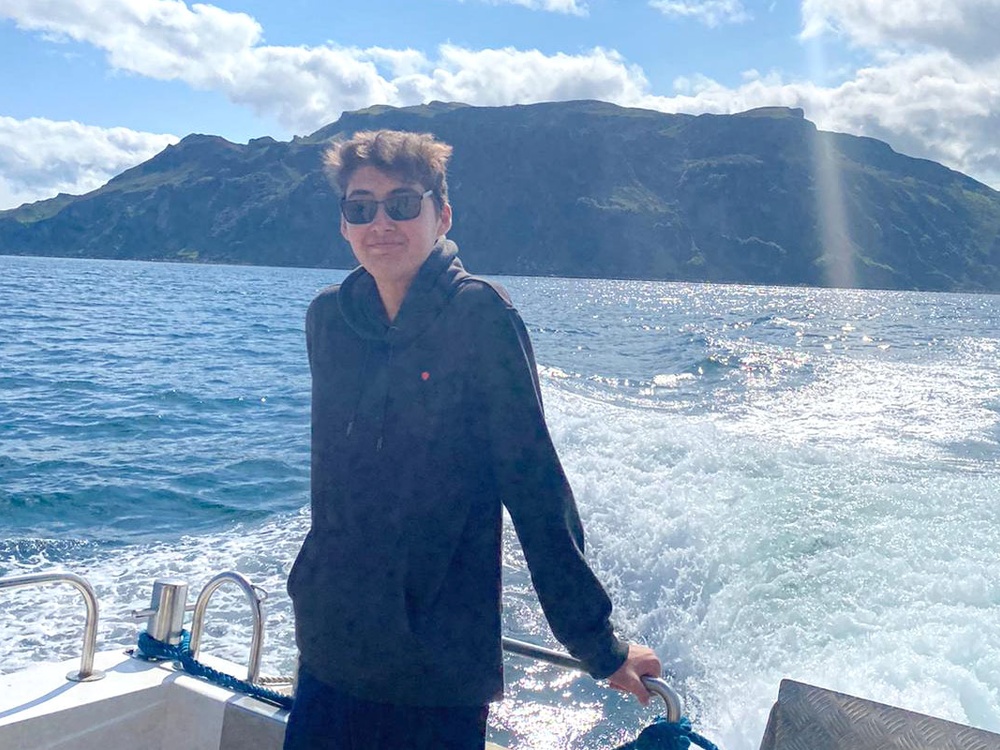Hi, my name is Joseph, or Jojo for short. I’m 18 and I have mitochondrial disease, which affects me with symptoms such as tiring easily and feeling fatigue. Another way it’s affected me is by causing my hearing to deteriorate, leaving me deaf.
I was diagnosed with mitochondrial disease (more specifically RRM2B) when I was around 12 or 13 years old, and my hearing has been declining ever since then.
When I first started secondary school I didn’t need any help with my hearing, but as time went on and my hearing loss progressed it became clear that I needed hearing aids. I was reluctant to wear them though, and this made my life unnecessarily hard. I was working twice as hard as everyone else just to hear what was happening and what was being said.
This went on for a while. Even though my parents and audiologists were begging me to wear my hearing aids, I didn’t like feeling different. I wanted to be normal, but denying the issue and pretending it isn’t there won’t make anything better.
One day I finally caved in and wore my hearing aids, telling myself I could take them out if I wanted to. But I didn’t take them out. I came home and told my parents they were right, my hearing aids did make it so much easier. Since then I’ve worn my hearing aids every day.
A long wait for surgery
Sadly, as time went on my hearing loss progressed, and the small hearing aids I had weren’t enough anymore. This was really upsetting for me and it meant I had to wear larger hearing aids with big ear moulds. Once again I didn’t want to wear them and be different, and once again my hearing got worse and worse until I started to wear them and felt the benefit again.
However, last summer I woke up one day and my hearing was completely gone. This was devastating for me. It meant that I needed cochlear implants, which we’d actually been trying to get for a while since my hearing in my left ear was a lot worse than the right. But now the hearing in my right ear had gone too, and cochlear implants were the next step.
Unfortunately, due to Covid, appointments were hard to get and I had to wait six months for surgery. This meant six months of not being able to watch what I wanted to watch and not being able to play the games I wanted to play. But, most importantly, not being able to communicate. I couldn't talk to people and I knew very little sign language, so I either communicated with people through my phone using an app to convert speech to text, or I didn’t talk to anyone at all.
It was a very lonely time. Missing out on opportunities, and even not going to college for a while, I was beyond bored. It caused my mental health to plummet. Time continued to tick forwards, and we were all counting down the days till my surgery.
A special delivery
Eventually the day of my surgery arrived, and my dad drove me to the hospital. The surgery took around four hours, but there were no complications and I only had to stay in hospital for one night.
But the healing process wasn’t easy. My head was swollen and I had to wear a very tight headband to keep pressure on the wound. This made life hard, and we had to cut a big hole in a pillow for my ear so I could sleep. During the healing process I was still deaf, as the next step after surgery and healing was getting the equipment and activating my implants. I couldn’t wait.
One day a big package arrived at my house with my cochlear processors and all the equipment and accessories to go with them. It was like Christmas for deaf people. Now we had my processors, and all there was left to do was activate my implants.
The audiologist stuck the processors to my head, connected them to a computer and after a few tests and questions she turned them on. At first everything sounded brushy, robotic and squeaky. But I knew that as time went on, my brain would learn to hear again using the cochlear implants, and my hearing would improve.
At the time of writing it has been twenty three days since my implants were activated, and my hearing is better than it's been in what feels like a lifetime. I’m wearing my implants every day and it all sounds natural, as If I’ve had them my entire life. They even have Bluetooth so I can stream them directly to my phone and listen to it as if I was wearing headphones. My parents say that they have their son back, and I feel as if I have my life back.
This article was first published in May 2022 and updated in 2024.

